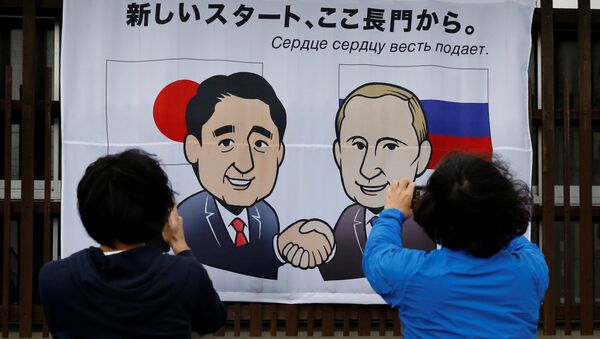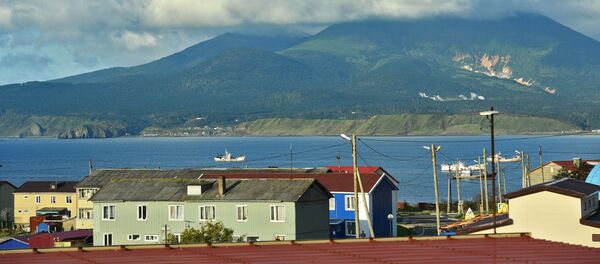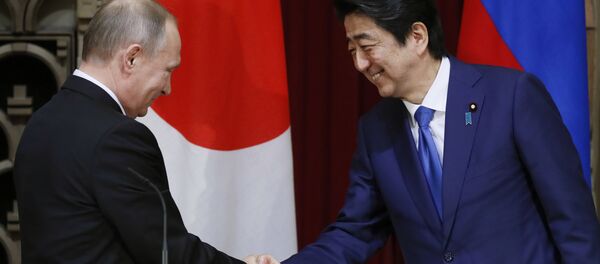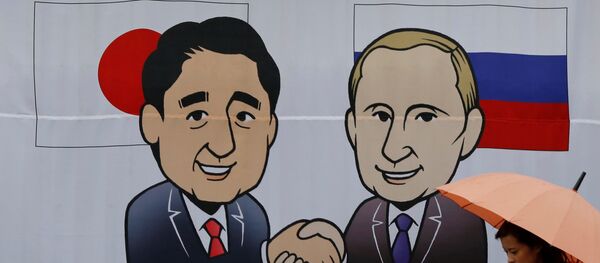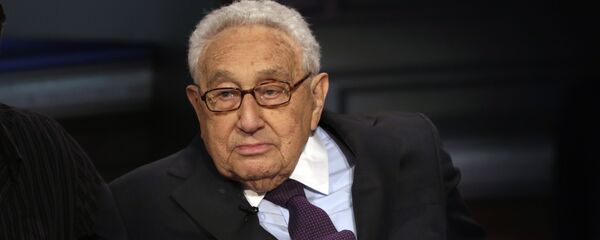Japan joined Western sanctions against Russia in March 2014. Despite the fact that they have not been as effective as planned, they have casted a shadow over Moscow-Tokyo ties.
At the time, the Japanese government decided to suspend consultations with Moscow on visa liberalization and put on ice talks on three agreements, including on investments, space exploration and prevention of dangerous military activities.
However, sanctions could not prevent Moscow and Tokyo from intensifying bilateral economic cooperation.
In mid-December, an official visit by Russian President Vladimir Putin to Japan resulted in a package of 12 interstate agreements and 65 commercial projects with a total worth of $2.5 billion. Among them were cooperation agreements with Russian companies under Western sanctions, including Russia’s major oil producer Rosneft.
Japanese Prime Minister Shinzo Abe "will have to waver" between these two opposing strategies, according to Vladimir Grinyuk, a senior research fellow at the Center for Japanese Studies, at the Institute for Far Eastern Studies.
"On the one hand, Abe is determined to develop cooperation with Russia. On the other hand, Japan is an ally of the US and a member of G7. I think that if necessary Abe could minimize Japan’s involvement in anti-Russian sanctions, but in a way that Washington and Brussels do not oppose that," Grinyuk told Sputnik Japanese.
The expert underscored that Japanese sanctions were not very "sensitive" for Russia and bilateral cooperation between Moscow and Tokyo.
Japan and Russia never signed a permanent peace treaty after the war due to a disagreement over four islands, which Russia calls the Southern Kurils and Japan the Northern Territories. The disputed islands, located in the Sea of Okhotsk, were claimed by Soviet forces at the end of the war.
"Abe’s priorities are a peace treaty with Russia and reclaiming of the Kuril islets. This is why Tokyo needs special relations with Moscow," Grinyuk pointed out.
Probably, Abe will have to explain the reasons for "special relations" with Russia at the next G7 meeting which will take place on May 26-27 in Italy. Sanctions against Russia will be on the agenda.
However, there are several important events expected before the summit.
Moreover, Italian President Sergio Mattarella is expected to come to Russia for an official visit in Spring 2017.
Finally, Abe wants to visit Russia in early-2017 to continue discussions on a peace treaty between Moscow and Tokyo. According to the Japanese prime minister, during Putin’s visit to Japan several important steps were made and now there is a chance to improve bilateral ties.
